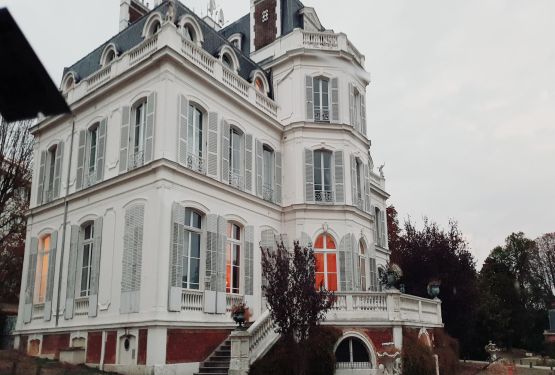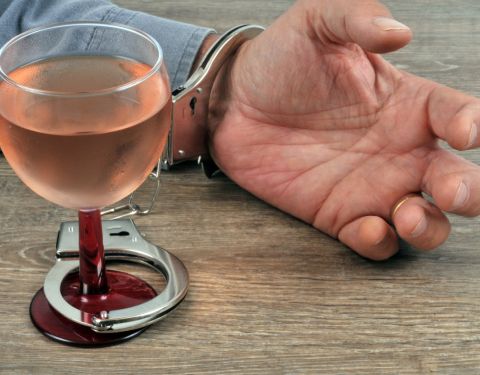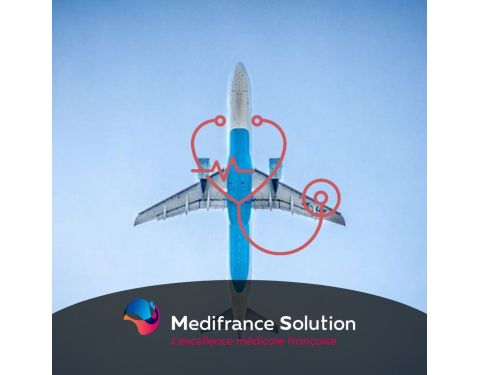On the one hand, drug and alcohol addictions are mental illnesses, but they affect a physical condition as well. Medical treatment, first of all, implies the elimination of disorders caused by alcohol or drug intake. The effective treatment is psychological that helps the patient to form a negative attitude towards alcohol or drugs.
In this article, you will learn how these kinds of addictions are treated in Chateau de Garches Clinic (France), which is located ten kilometers from the center of Paris.

Why people become addicted to alcohol and drugs
There are two main types of addiction: congenital and acquired. Congenital type means that you were born with the addiction. Alcoholism and drug addiction are diseases, and many diseases are passed on from generation to generation, including psychological disorders.
For example, people who have a predisposition to alcoholism, have a reduced capacity to deal with the addiction, in comparison with people who do not have this predisposition. We are all born different. Some people have blue eyes, some people have gray eyes, some people have a fast metabolism, and some do not have. For the same reason, some people can drink but not overdrink themselves, but others cannot. If a person is ill with alcoholism, it means that his illness is for a lifetime. Alcoholism can be cured, but the patient must not drink after the successful recovery at all. He will never be able to drink moderately.
Scientists have not discovered the gene of alcoholism. Despite this fact, a genetic predisposition still exists. So if some of your ancestors had problems with alcohol and drugs, consider it.
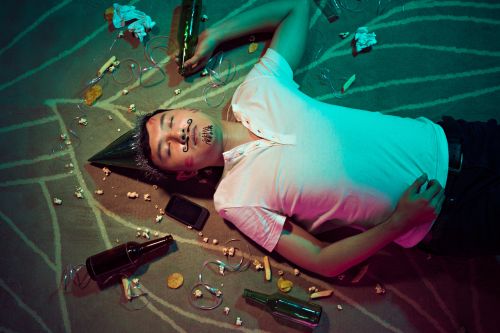
Emotional shock and depression as the root cause of drug and alcohol addictions
As we have already mentioned, people with a genetic predisposition are more susceptible to alcoholism. However, this is not the root cause. It is the doctor who should try to find out a real reason for the abuse. Most often, they are nervous shocks, such as the loss of a loved one, the loss of a job, depression ... The correctly identified cause of addiction helps effectively to overcome the disease.
Gambling people and those who love the thrilling experience are much more susceptible to drug addiction and alcoholism.
How do you know you are alcohol dependent?
If you ask yourself a question like this, you have problems with alcohol without any doubt.
There two types of abuse:
- One-time. You overdrink yourself every weekend, and you do not drink at all on weekdays.
- Regular. You feel the need to drink every day.
If you drink and cannot STOP, you are alcohol dependent.
Scientists have concluded that it does not mean how often a person drinks. How much a person drinks is more important. It is the amount of spirit that affects human health and causes various diseases, including cancer.
A Swedish doctor used the word “alcoholic” in 1850 for the first time. After more than a hundred years (in 1978), WHO did recognize alcohol dependence as a disease. Accordingly, an alcoholic is not just a drunkard, an alcoholic is a sick person. Although nowadays, this word is considered offensive.
Alcohol addiction and family
It is very important for the family to understand that alcohol addict drinks not for pleasure, he drinks, because to drink has become a necessity, a vital necessity. As every person needs oxygen, an addict needs alcohol. This is precisely the disease.
Blaming an inebriate and asking him to stop drinking is the same as asking a person with leukemia to stop treatment. People with addiction like people with cancer are not the masters of their diseases.
Health risks associated with alcohol addiction:
- Permanent dehydration;
- Steatosis and cirrhosis, acute hepatitis;
- Oncological diseases;
- Dementia;
- Sudden death.
Even long abstinence from alcohol cannot restore health problems caused by a large amount of alcohol you abused earlier.
Recommended maximum intake of alcohol is equal to three glasses of wine a day according to the WHO.
What is it like to be alcohol-dependent?
The lifestyle of people with addiction changes, the mode of the day is broken. An addict can lead an active social life, but he is unable to have harmony in his life since at least one of the elements necessary for a happy life will fail.
Elements of a happy life:
- Family
- Job
- Friends
- Health
Very often, an inebriate ruins all these elements.
Sometimes an alcohol-dependent man puts his or someone’s life at risk. Every 20th death in the world is caused by alcohol.
Today there is no drug that can restore the liver. You can take various vitamins, herbs, but they are unable to fight the destructive power of alcohol. The liver is an organ that regenerates itself if there are no destructive factors such as, for example, alcohol. However, in the case of cirrhosis, the process becomes irreversible, and only a transplant of the organ can save the patient. The transplant of the liver is not available to people suffering from alcoholism since after the transplant they will ruin the organ again.
In addition, if a biochemical blood test reveals the excess level of GGT enzymes, there is a risk to die of acute viral hepatitis.
Addicts are in a constant state of beriberi, as vitamins simply have no time to assimilate!
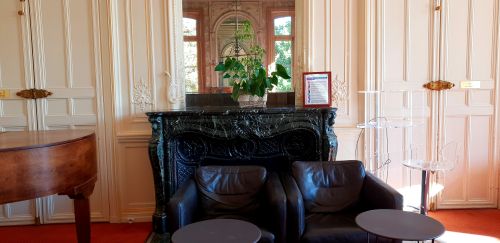
A modern approach to alcoholism treatment
Methods based on intimidation and suggestion showed their inefficiency in France in the 1950s. Scientists and doctors have concluded that such techniques as hypnosis, injections, magnetic resonance therapy do not have a long-lasting effect and they are unsafe.
In developing countries, however, these techniques are still popular due to their availability.
In 2008, people triumphed: a cure for alcohol dependence was invented. That year the brilliant French cardiologist Olivier Ameisen, who had suffered from alcoholism, decided to take the muscle relaxant drug BACLOFEN, which was mainly prescribed to patients with multiple sclerosis. The doctor thought that he had defeated his illness that way. He shared his experience in overcoming alcohol addiction in his book “The Last Glass”, which aroused a great interest not only among ordinary readers but also among the scientific community. In 2017, many doctors in France began to prescribe Baclofen to their patients. The doctors, however, were not satisfied that the drug had a large number of side effects and that an addict had to spend the rest of his life on baclofen.
Awareness of the responsibility is the best way to overcome addiction. Chateau de Garches Clinic
The patient in France is not treated as a child or a weak-minded person. Doctors help the patient to understand that he is the manager of his life. It is the patient who is responsible for himself and his loved ones.
It is not easy to do with those who have a psychological and physical dependence on alcohol. It is difficult to explain something to a person who is drunken, and it is even more difficult to deprive a person of alcohol, wait until he sobers up, and then try to explain anything to him. Besides an addict does not just feel bad during withdrawal (abstinence syndrome), he may even die. Physical dependence makes the patient suffer the following torments:
- Tachycardia,
- Tremor
- Excessive sweating
- Depression
- Irritability
- Nightmares
- Bowel Disorders
- And so on…
Treatment in Chateau de Garches Clinic. Stage One
It is quite complicated to treat alcohol withdrawal without medical care. Only experienced specialists should do this in order not to do harm to the physical and mental health of the patient. In specialized rehab facilities in France, the detox process lasts for 7-10 days. Under the supervision of specialists, the patient is given drugs whose effects on the brain are similar to those of alcohol. These drugs are necessary to reduce the side effects that arise after a cold turkey. Each medicine is selected individually depending on medical test results. Next, drugs that help to fight withdrawal symptoms are prescribed. Doctors carefully monitor the patient’s state of health, particularly heart activity, temperature and blood pressure.
The first stage of treatment is the hardest one.
Medical attendants regularly supervise the patient; he is prohibited from leaving the territory of the rehab during the treatment.
The patient has three meals a day; the diet is made up in accordance with the patient’s needs and preferences.

Coming to the realization and abstinence from alcohol. Stage Two
The number of potent drugs is reduced, and later on, is eliminated. The patient begins to take medicine that discourages a psychological craving for alcohol. There is a wide variety of analogous drugs, and it is the doctor who chooses the right drug according to the patient’s individual characteristics. This drug must be not only effective but also safe for the patient. What is right for others does not mean that will be right for you. These medications are prescribed by the doctor only!
During the treatment, a team of doctors and psychologists works with the patient.
The patient will not be intimidated or be delved into his subconscious. The patient must realize that there is a problem, and it must be dealt with. First of all, it is he who needs treatment, but not his relatives and friends. If the doctors treat the patient not as a sick alcoholic, but as an absolutely healthy and responsible person, suddenly everything clicks and the patient really wants to get rid of his “sore”. Doctors and psychologists together with necessary medicines simply help him do this: during the first stage, they render physical assistance, during the second – psychological one.
The psychologist prepares the patient for returning to society after addiction treatment, discussing all possible situations that the patient may face and not be tempted to drink even a glass of wine.
The patient must completely give up the bottle. On the first side, it seems impossible for a person who has been drinking for many years. However, alcoholism is a chronic disease. Sometimes even a sip is enough to return to a terrible uncontrollable drive to drink. Some kinds of treatment do not force the patient to stop drinking for life. There are even therapies that learn former addicts to drink properly. Most doctors, however, are skeptical of this approach.
In addition to the basic treatment, Chateau de Garches Clinic offers a wide variety of activities:
- Art Therapy
- Gymnastics
- Yoga
- Walk in the open air
- Billiard
- Table tennis (ping-pong)
- Alcoholics Anonymous Groups
- Narcotics Anonymous Groups
- Practices to combat depression
- A sleep lab
- and others...
The schedule is updated every week.
You are allowed to come to the rehab with pets.
You can choose a pseudonym for yourself.
Successful treatment takes about three weeks. The clinic does not guarantee that the patient will give up drinking, but it guarantees that the patient will have no desire to drink. If this scientifically based and proven treatment has not helped the patient, there is very little chance that anything else will help him.
Clinic Chateau de Garsch provides an alcohol treatment program for VIPs in a residential setting. Three weeks of the treatment cost an average of 25,000-28,000 euros. The clinic successfully treats mental illnesses, such as bipolar disorder, bulimia, anorexia, obesity, and others.
You can request treatment on our website.




